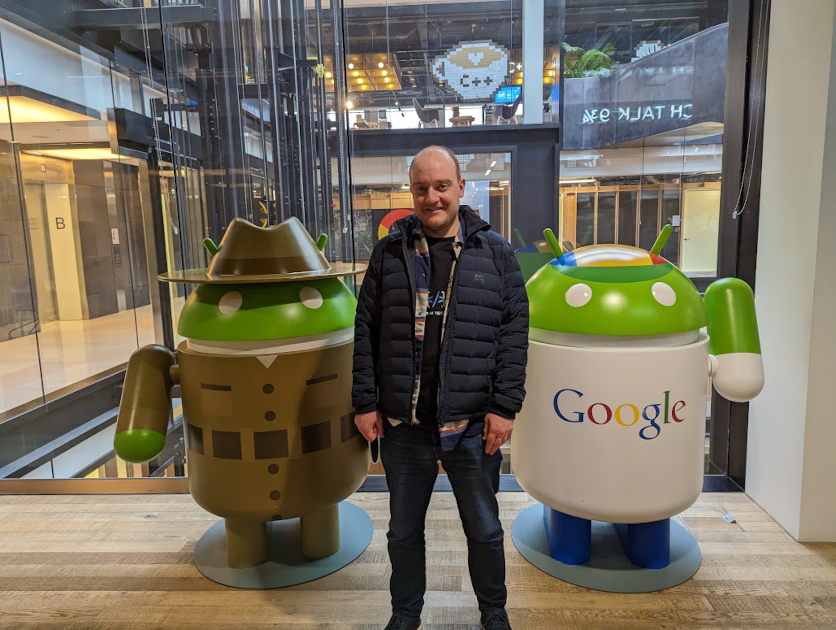The journey to Software Development Engineer in Test
During the COVID-19 pandemic, I presented a talk to a small audience on my journey to becoming a Software Development Engineer in Test (SDET). Although the journey is personal, I feel the process can be applied to any career or goal; which is why I have decided to share the talk along with my personal notes.
I hope they are useful and bring value in your journey!
Find your passion
My passion in computer science and testing was ignited by my first job in the industry, I powered this passion with curiosity and a desire to learn
Find something or someone to ignite your passion, it could be a:
- Job
- Book / Magazine
- Personal project / hobby
- Enthusiastic friend or colleague
You won’t always find your passion overnight
Try many things and stick with something you’re curious about
Persist with something even when the novelty has worn off
If you’re passionate about it and find it engaging you won’t find it hard to be dedicated when the challenges start
Develop skills
In 2011, I started to learn how to code in Java, by finding opportunities to apply what I was learning at work
You need to develop skills if you want to work for someone
Find out what skills you bring to the table
Start developing the skills you don’t have
Don’t fear perfection and take small steps each day or week
Malcolm Gladwell states in his Outliers book it takes 10,000 hours of practice to master a skill, so there’s no better time to start something new!
Find an accountability partner, this could be your manager, colleague, friend etc - ideally someone who has a similar interest
Be vocal about what you want to learn, It’s not a weakness!
Set goals and work towards them
Working in the technology industry, I get the opportunity to learn and apply what I have learnt - I enjoy this process
Develop a growth mindset!
Working in technology requires continuous learning
Set goals and hold yourself accountable to them
Write your goals down and keep them visible so you can read them daily, try including affirmations too
Break each goal down into actionable tasks that you can schedule into your weekly calendar
Never give up on yourself!
Learn from failure fast and continue to grow
Failure is normal and expected, it could be a failed business, project or course etc
I have learnt more from failure than from success
Failure == Learning Opportunity
Want to be a manager, software engineer, <enter position>, then find out what skills you lack or are weak in and make a plan to make those skills your strength
Ask for feedback on your work! Even when something seemingly went well, ask for feedback!
Feedback will allow you to become aware of an area that you can improve in and grow
Face a weakness with curiosity to make it a strength.
Find a mentor
I recently found a squash coach to help me develop as a squash player
Find a mentor in a skill you want to develop
I have never directly had a single mentor, but I have worked with individuals who I could learn from and respected their knowledge and experience
Show gratitude to people who are willing to spend their own time to teach you
You may only come across a few people who are willing to mentor you in your career, but when you do, have gratitude to know and work with such people as they will help you grow!
Surround yourself with people who have similar goals or aspirations and with people with who have a positive mindset
Share experiences and hold each other accountable
If you can’t find a mentor; then be a mentor as this will also help you too!
Work when nobody is looking
You own your career and goals so take responsibility to work towards them
You don’t need to share your goals with everyone in your social circle to be successful
Your goals are personal to your values and beliefs, they don’t require approval from peers
Everyone has different aspirations and opinions that can muddy your thoughts
Try connecting with an accountability partner regularly to see if that helps achieve momentum
Pick the right time of day to work/study and learn, if 6am works then go for it!
Align your career with your superpower
Consider a role that allows you to use your strongest skill the most
If you enjoy communicating and leadership more than coding then don’t force yourself into a career as a software engineer or SDET which is more engineering focused
Bring all of you to work so you can contribute in more ways
Be kind!
References
Clear, J. (2018) Atomic habits. London: Penguin Random House.
Gladwell, M. (2017) Outliers: The story of success. London: Penguin Books, Limited.
